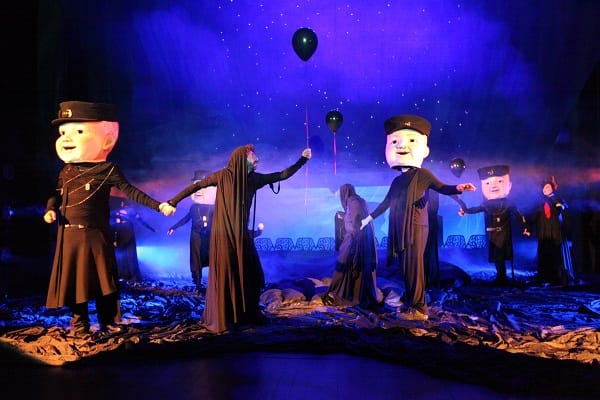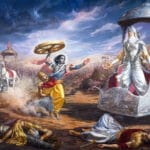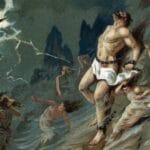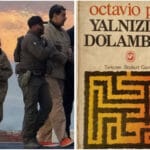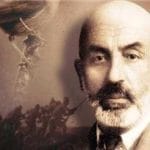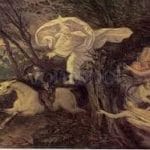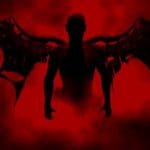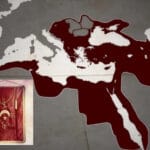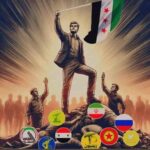In his novel “The General of the Dead Army*”, Albanian writer Ismail Kadare tells the story of an Italian general who comes, twenty years after World War II, to Albania to retrieve the dead bodies of Italian soldiers who had occupied the country and died there. He is to collect the bones of his soldiers and take them back to their homeland. He travels through the fronts and the places where battles had occurred, one by one. The list in his hand contains information about all the dead. Their ages, heights, names, places of birth, families… Each is from a different region, a child of a different story. They had come to these lands for a noble mission, and they died for it.
The general took on this duty as a result of an agreement between the two countries, and he had an official permit in hand. Yet, in many places, he encountered resistance from locals or officials. Because they were occupation soldiers, and the people were understandably disturbed by their digging around without even offering an apology. Nevertheless, the general carried out his task with great patience and dedication. He would return the remains of the soldiers to their families. Before his arrival, hundreds of mothers, fathers, and spouses had come to his door saying, “Bring us our child, our spouse, our beloved, at least let us build a grave for them.” They had laid a heavy burden of moral responsibility on the general’s shoulders… With the help of a priest accompanying him, the general fulfilled this difficult mission after a long and exhausting investigation. But in many places, the bodies were mixed together. Some of the remains were incomplete… He puts the skulls of some on the skeletons of others, adds the hand of one to the arm of another, gathers as many as he can into a plastic bag and delivers them to Italy…
The general of dead army gets very angry at wartime commanders during this mission, saying that they followed the wrong strategy on this front, that the commander acted prematurely when entering this village, dug a position in an inappropriate place here, that he should have retreated more orderly there… The general is aware that his duty is to compensate for the incompetence of former commanders who do not know how to fight. He was there to salvage his nation’s honor, and gathering the victims of failed commanders was harder than the war itself. The general endured many other hardships and ultimately left Albania with the peace of having fulfilled his duty…
These were the days I was reading Kadare’s fascinating story. I had had a busy day full of interesting coincidences. I had to meet and talk to dozens of unrelated people one after the other on the same day, for no reason at all. I ran into an old leftist friend on the street. We had a brief chat. Then, in the office of a businessman I visited, I witnessed an MHP (Nationalist Movement Party) member and a PKK-affiliated guest coincidentally being in the same space. We had a long conversation. Later, I found myself in another meeting with a friend who remained an Islamist and another former friend who had become a new politician. Afterwards, I was right in the middle of the ordinary agenda of the people, during a short condolence house conversation with my relatives. Then, in another place, I bumped into nationalist Kemalist and Alevi-leaning individuals. We talked at length about current events. Then, in different ways, friends from the Alperen Hearths, and then other friends from a newly formed opposition political movement, then a few young people who claimed to be liberal, and finally, conversations with the regulars of a coffeehouse of which I was a regular… That evening, at a meeting, I met someone from the Fethullah movement. On my way home, I chatted with my Balkan immigrant neighbor at the doorstep, and finally dragged myself into the house. Who knows, perhaps there were also a few phone calls I’ve forgotten in between. While the fatigue of such a strange day was on me, I remembered the general who was the hero of the novel I was about to finish… I suddenly identified myself with that general. I truly felt like the general of a dead army that day… The summary of the day was running through my mind in a disordered, fragmented, chaotic way. Dozens of faces from different identities, ages, genders, temperaments, sects, beliefs, different troubles, joys, different jobs, from different places and settings; hundreds of sentences, countless moments, gestures, facial expressions, different tones of voice, glances… They were swirling around in my brain, all mixed up in each other. It was as if I had been gathering skeletons all day, unable to tell whose words came from whose mouth, which expression was from which conversation’s most memorable moment, which friend’s hair had turned gray, which one’s face had gained color, whose house had been seized due to credit card debt, who would be on the list at what congress… I had returned home with bag full of “skeletons.” I had mixed them all up.
Most of all, I was mixing up the word; “It is actually a lie that the Kurds have given up on their demand for a separate state; they have spread their demands over time. For now, they’ll insist on Kurdish being the language of education in schools, then they’ll form an autonomous Kurdish region, and eventually, they’ll establish a state solely for Kurds… I earn seven hundred and fifty lira a month, four hundred goes to rent, I have two kids, my father raised us under the same conditions. I don’t understand what this government has changed. A Muslim who forgets jihad is a hypocrite. The left needs to stop being an expression of the Alevi subconscious. We get on the metrobuses like sheep, and the stations are always built far from the roads. We can’t make ends meet on this salary, brother, and neither could my father. Since the day they said we are all Armenians, I have become estranged from all of them. I used to take those liberal leftists seriously. Now I see them as representatives of Europe and the Armenian lobby. ‘The Hodja’ has always been on the same path. He never believed anything could be achieved by confronting those in power. This country ended on the 10th of November 1938 at five past nine am. After that, it became prey to imperialism. The counter-revolution began with İnönü. We’re ashamed to say we’re Turkish, my friend. If this continues, anyone who isn’t pro-Kurdish will be labeled a racist. Who would’ve thought we’d see these days? So what if cemevis were also considered houses of worship? Alevis are the poor of this society. They’ve always been fought over and crushed underneath. This army is a NATO army that has occupied its own country. Without breaking their back, there’ll be no democracy or anything. America’s plan to divide Türkiye is progressing step by step. The government is selling ports, lands, and companies to the enemy. The conditions for a second war of independence are maturing. The Ergenekon mentality is still resisting. Like the clerics in Iran, they block every step toward change. They’re enslaving us through subcontracting. A system is being built with unorganized workers who have no rights or choices. This is an operation to prepare the people for the savage order of global capitalism. One wing of the British is clashing with the Israeli lobby. Look, the rescue of the miners in Chile was timed to coincide with the grand visit of the Iranian leader to Lebanon. They’re trying to overshadow the resistance axis. We can no longer do profitable work as before, brother, there is a small gang and they do not give work to anyone from outside. The same scheme is set up everywhere. Don’t trust the worker or the people of shantytowns, my friend. Look, before the September 12 coup, the leftists brought roads, constructed water, and sewerage systems, but it was that same public that first reported them during the coup. Alevism, Kurdish nationalism, Ummahism are all long-term plans aimed at destroying the Sunni Turkish main artery. Because if that artery is destroyed, this country will collapse I had to marry her anyway. I never loved her. I compulsorily managed for years after I had a child. What can I do, it’s only this far. I want to live a little for myself too… For the first time, my heart flutters, my hands and feet tremble when I see her. Love forgives everything. There are billions of people living at the hunger line. Millions of Muslims have been slaughtered in Iraq, Afghanistan, and Palestine. The cause of justice has been left ownerless. A new political movement needs to emerge from here. Let the world be damned. Everything is meaningless. Nothing should be taken seriously. Damn it, all the state’s power is directed at the Kurds. The hatred it doesn’t show to America or Israel, it shows to the Kurds. Muslims are hypocrites. Weren’t you supposed to want for your brother what you want for yourself? You want education in the mother tongue in Bulgaria and Germany, but when it’s Kurds, you fall silent. My friend, I don’t understand, 25 states have broken away and they can’t take even an inch of land from us. Let them live in Erbil. Let them leave Istanbul too. Here is Turkish land. Are our children supposed to speak through interpreters? I went to the hospital, the doctor glanced at me and wrote a prescription. Come on, tell me, your illness is caused by this, do this, do that. You sullen man. All of these doctors have become merchants. The Armenian lobby is exploiting the Kurdish issue with the support of Iran and backing from Europe and the U.S. In fact, they’re taking revenge on the Kurds for 1915. Look, the PKK has killed the most Kurds, harmed Kurds the most, and presented them as sacrificial victims and targets to Turks, Arabs, and Iranians alike. As long as this president is alive, no leader from the right will stand a chance. The national vein within the state has challenged the U.S. The move to make Türkiye a global power has begun. Let’s get used to living as citizens of a superpower from now on. Just recently, a leftist friend who had served 22 years in prison was re-arrested. Yesterday, he burned himself in prison. Burned for four full hours. His whole body melted… I visited Ahmet Kaya’s grave in Paris and recited a Fatiha. Right behind it was Yılmaz Güney’s grave. For some reason, I couldn’t bring myself to step toward it. It’s like he wasn’t one of us. Old right-wing and left-wing parties won’t exist in the new Türkiye. Politics will be shaped by new actors and new parties. As Balkan immigrants, we voted no in the referendum as a bloc. Because the government is selling the homeland. It’s making concessions to the Kurds. This week on Valley of the Wolves, they explained the background of the missile shield project. Those guys follow the agenda closely. If the Fethullah movement is not regulated, they will be like the Kemalists. They have the same narrow-mindedness. They do not consider anyone but themselves as a human. But the people will teach them a lesson too. Young people now want to live like in the movies. Neither religion, ideology nor morality promise them a future. But they are ready to do anything to live the most comfortable life. I don’t believe in anything or anyone anymore. I don’t care, whether God exists or not…”
Sentences were swirling around like that. My mind was in complete chaos. My brain was making an involuntary collage. The body of my Islamist friend had been topped with the head of an Alevi acquaintance. The face of my leftist friend was the same, but he spoke with the voice of someone from the Fethullah movement. The way the PKK member I met drank tea was just like a friend from the coffeehouse. The words of my cousin were coming from the mouth of the migrant neighbor I ran into on the street. The way my nationalist friend waved his hands while speaking resembled that of another friend who was just getting into politics. They were all like skeletons. And I had mixed all the skeletons up.
It felt like the garbage heap of a poisoned, diminished, absurd country had been dumped on me… My daughter called out from another room, “Dad, do we have Niyazi Berkes’ The Development of Secularism in Türkiye? The teacher said there’d be questions from it on the exam.” “Yes, we do, sweetheart. There’s every kind of idolatry in Türkiye…” My wife intervened, “Don’t forget, we’re taking Fatma to the hospital tomorrow.” Fatma is my wife’s sister. I think it’s been 20 years. She’s schizophrenic. On doctor’s recommendation, we take her to Bakırköy every six months. Sometimes we hospitalize her for a month, sometimes longer. She was expelled from the Mathematics Department at Mimar Sinan University in 1991 because of her headscarf. She was the only veiled girl in her class. One day, the professor scolded her in front of everyone and threw her out. She began to unravel after that, started saying the police were following her. “I’m being watched,” she kept saying. That’s how the illness began. For 20 years, she’s lived like half-dead, on medication. She survives almost solely on tea and cigarettes… She recently dropped to 48 kilos. This year, she took action for the first time. She took the university entrance exam again. She won the open university. For the first time in 20 years, she smiled. “Fatma, your teeth are totally rotten,” I said. I saw her teeth for the first time in 20 years, because she never even talked, let alone smiled. In response, she said; “His own party will destroy the opposition leader.” She always had such a strange agenda.. She thought that everyone was talking to her on TV, in the news programmes, in the TV series. Her gaze was still meaningless and cold. Still, we were happy she had started talking. Maybe there’s hope… Maybe she’ll rejoin us. But “us” who?
Fatma reminded me, one after another, of a leftist girl who had been tortured and raped under interrogation, a PKK member who went up to the mountains before finishing university and was tortured to death there as a suspected agent, and a nationalist who lost his manhood due to torture in Mamak Prison after the 1980 coup, and who then couldn’t confess his love to the girl he cared for, withdrew from life, and ended up collecting garbage in the streets.
Was it life that was cruel? Or people? Or God? Or the corrupt system? I couldn’t know.
Without realizing, I had finished the cigarette pack. I used that as an excuse to step outside. It was raining heavily. I was trying to gather my thoughts. The rain was flowing into the well of my brain, and I began to collect the skeletons in the pit where the water was filling. I placed the leftist’s head on his own body. The Islamist’s voice returned to his own mouth. The PKK member started drinking tea as himself. The MHP member got back his own hands. The Kemalist’s eyes returned to his own face. Then I started placing the words… the sentences. And during that time, I began to think that each of them was the general of their own dead army. Everyone had a war they had fought in the past, whether just or unjust, and they all spent the rest of their lives collecting the corpses of those they had lost in that war. I saw that each had gathered skeletons that were incomplete, fragmented, broken. And each of them took pride in this, like a general of a dead army.
Then I thought of the our real army and its real generals. They were truly dead. They were tirelessly standing guard over a corpse they could never bury, helpless but with a faithful determination… Then I thought of the state. Actually, this state, or the established order, whatever it was, was a dead army general. Yes, it was him. It had collected the remains of an empire that had died in the First World War, and from what it could gather, it built the skeleton of a republic. After leaving the capital city, it erased its memory and was constantly guarding the cemetery like a madman who thought that by making people prostrate to the pantheon of the dead, it would come back to life. But it kept killing the living too, scattering their skeletons all over the place. Those skeletons were also incomplete, fragmented. From all those bones, not a single complete person could be made. No organ was where it should be. No skeleton could be returned to its rightful owner. That’s why the state, as the general of the dead army, either scolded the parents to be content with this, or did not hand over the dead to some, or hid the skeletons of their children from some families, hoping to find new bone pieces and complete the skeleton… “Everything that is not buried properly comes back to life,” someone had said. Maybe that’s why our fathers didn’t mourn. It was as if they had waited their entire lives for the bodies they couldn’t get. The grandchildren were unaware of their grandfather’s war.
But they were chasing the incomplete, fragmented, broken cause of a lost inheritance.
From the skeleton of a fallen plane tree, everyone held onto a piece for themselves.
Some called it justice, others said Armenian, Greek, most said religion, Islam, morality. Some spoke of modernity, independence, honor, dignity, one nation, one state. Some said Kurdistan… When they were all collected, a single and meaningful name was coming into being, it was becoming that great plane tree, but separately, each of them was like a meaningless and ugly part of a lifeless skeleton. And they were pieces that bore resentment and hostility toward one another. No one liked their place; everyone saw the other as a threat to their own existence.
A threat to existence and survival had left everyone with a fear that was incomplete, fragmented, and broken. Turkishness, Kurdishness, Islam, secularism, the Republic, Alevism, independence, the homeland… all were in danger, these values were being consumed, were sought to be destroyed; politics of denial and annihilation, assimilation, concessions, ignorance, heedlessness, betrayal, corruption, subservience… accusations were knee-deep.
Everyone had made an idol out of words that they identified with their own fragmented existence and worshipped it with a lustful passion without questioning it.. It was as if a collective fear from the past had been transformed into anxiety for the future, and this anxiety seemed to be shared by every individual in society… Each of us was like a scattered skeletal fragment of a dead army. We were living with the unburied dead in a necrophiliac country. We were living as if we were not living, as if we were not living. We seemed to be searching for a faithful general who would carefully gather our idols, our passions, our hatreds, our fears, without disturbing them, and carry them back to our common homeland..
I thought of the widowed Iraqi women who were sold into the nightclubs of Jordan, Beirut, Dubai, and the oil-rich Gulf Arabs who entertained themselves with petrodollars in those places. I thought of Chinese children abandoned on the streets, tiny Latin American girls who underwent cosmetic surgery just to place in beauty pageants, and from the eyes of a Darfuri child, I saw the gaze of impoverished Africans… I remembered a mother from Gaza secretly having her beloved cat butchered and feeding it to her child so he wouldn’t die of hunger.
‘When Ali bathed the Prophet, the world wrinkled…’
Suddenly, I began to feel hatred toward everyone and everything. I wanted to destroy them all. Nationalists, leftists, Islamists, Kemalists, liberals, Turkists, Kurdish nationalists, Alevis, right-wingers, left-wingers, ultranationalists, Gülenists, bureaucrats, technocrats, businessmen, teachers, students, young, old, women, men, rich, poor… I wanted to gather them all in a square and burn them. All the states, all the banks, the companies, all the religions, all the prophets, all the philosophers, all the books, poems, words, all the seasons, all living beings, trees, birds, insects, stars, the moon and the sun… And I wouldn’t even collect their skeletons afterward. I felt like one of the Syrian soldiers who, after defeating Rome’s cruel, greedy, slave-trading emperor Crassus during his eastern campaign at Harran, killed him by melting down all the gold he had hoarded and pouring it down his throat.
Finally, for a moment I wanted to destroy God.
I would burn everything, then stand before the flames, smoke a cigarette, and finally throw myself into that fire. ‘Eli Eli lema sabachthani.’ My God, my God, why have you forsaken me!
I was left like a skeleton of bones. I felt a terrible cold. Then I could feel nothing. My bones began to break and fall out one by one. My hands, my knees, my feet, then my spine were shattered. Everything that had belonged to me was now on the ground. The mad rain carried off some of my parts. Now I too was an incomplete, fragmented skeleton remnant. All the ranks that I had ascribed to myself were stripped, and I became an ordinary soldier in the army of the dead.
My soul first ascended toward the sky. I was looking down… time, death, and I had begun to rise together. Everywhere I looked, it was as if a blaze of fire was lighting up the darkness, and everything appeared as if it were daylight. I began tumbling rapidly into a tunnel of time. Like the worms that ate Solomon’s staff, death was biting at my flesh and bones. Then everything began to darken. It wasn’t Jacob’s eyes that had gone out, it was the light of the world that had died… Suddenly, I found myself in Joseph’s dream. I was in a well, Züleyha was looking at me. I first saw Mehmet Akif in her eyes. He was giving a sermon in a mosque, and the Libyan sheikh Sunusi was with him. Verses of jihad echoed in the dome. Far off, Kuşçubaşı Eşref was loading weapons onto a mule together with Sergeant Salih. Black Musa was unloading something from an old boat with Kurdish porters at the Karaköy pier. Then I saw Enver Pasha, sitting under a tree in the Pamir mountains, reading the Qur’an. Süleyman Askerî was drawing up plans in his tent in Kut al-Amara. Ömer Naci and Bahaddin Şakir were in a stone building in Erzurum, pleading with members of the Dashnak party, saying: “Don’t break your promise…” A little further away, Sultan Abdul Hamid was thinking alone in front of a chessboard. There was Namık Kemal, in the dungeons of Famagusta, he was talking about something with Sheikh Ahmet of Suleymaniye, who had rebelled against the Edict of Reform, saying, “I have become estranged from this state that makes concessions to the infidels.” That must have been Sarayburnu. The sea was blood red. Hundreds of Janissary corpses, torn apart, floated along the shore. Farther off, I heard Kuyucu Murad Pasha’s screams: “Don’t let a single one alive, kill them for the sake of God…” The place was full of corpses; children, women, old men. Some wore red headscarves. To my right were the city walls. Cannons were pounding the aging fortresses of Byzantium. Sultan Mehmed was raining down orders upon his soldiers. Among the conquest army, I noticed Greek, Serbian, Vlach, Kurdish, Arab, and Armenian soldiers… I turned to my left. In a cage, I saw Yıldırım Bayezid. His head bowed, as if he were crying. As I passed over the skies of Sivas, I was met with a ruined city. Timur had destroyed everything. Descending down toward Baghdad, I saw towering pyramids made of human skulls, remnants of the Mongols. Far ahead, Sultan Salahaddin sat on his horse before Jerusalem, deep in thought. Suddenly, I turned upward. I was on the plains of Manzikert. Two armies stood facing one another. Turks, Kurds, Armenians, Greeks were all on one side; Byzantines, Turks, Kurds, Greeks on the other… A strange sight. At the head of one army stood Alp Arslan, looking like an eagle. Those behind him didn’t seem to be from different races or religions, but rather from the poor, the forsaken, the oppressed with proud and brave expressions in their eyes, they looked like a single nation, an army of dignity. Before them stood no unified race either, but a spoiled, wealthy group in shiny armor on fancy horses. They were all mercenaries… As Alp Arslan charged his horse toward the Byzantine nobles, the wind swept me down again. This time I was in Karbala. I caught sight of Hussein’s severed head. Corpses strewn across the ground. I looked for Zaynab. She was chained and being dragged. Her gaze caught my attention. I took that gaze into my palms and turned toward Mecca. I entered an old, earthen house without permission. In the courtyard, Khadija was sitting, staring into the distance. The sparkle in her steady eyes was the glow of the feather on Mary’s cheek. Inside, the Prophet was sitting thoughtfully on a cushion, I think Abu Bakr and Ali were next to him. I gently opened my palm and blew Zaynab’s gaze toward his face. At that moment, tears that had pooled in the dark hollows of my eyes burst forth along with words. I said, “O beloved Messenger, I came to you, because He no longer speaks to us. I don’t know what sin we committed. I fear He has forgotten us or He is punishing us. So I came to you. Deliver my words to Him. Be our messenger. Say to Him; O my Lord, You granted time to that devil, and to his offspring, and to those who follow him. For millennia, they have oppressed humanity. They pit us against one another. They lead our brothers astray; with gold, with power, with lust, with bloodlines, with lies. But we, we resist, we struggle, we fight for the sake of remaining Adam… Yet we keep going in circles. We keep losing. And our hands are tied. Because we cannot oppress like them. We cannot steal. We cannot kill. We cannot lie. We can neither fight to the end, nor live with dignity like humans. Our lives are spent either gathering skeletons or waiting for someone to gather our own bones. “- Snow has been falling into our souls since the night we were born from our mothers”… Tell him, Oh my Lord, who has a plane tree called mercy in his heart, we are tired of this game. Our souls cannot bear the reward of this noble pain… Either assign us to Your vengeance, Give us respite as you gave to the devil, or… expel us from Your Presence. We no longer want Heaven or Hell. Erase our souls as well. Let us be as if we never existed. Erase our names from the Preserved Tablet.
The beloved Prophet quietly replied: “You must deserve both existence and non-existence.” Then he leaned toward my ear and whispered: “Vel ba‘su ba‘del mevt…” (And resurrection after death…) A poem came to my mind at that moment, time had stopped:
“Water that relieves pain, no one knows that water hurts.”**
**İsmet Özel
*First Publication: 2014-haber10.com
